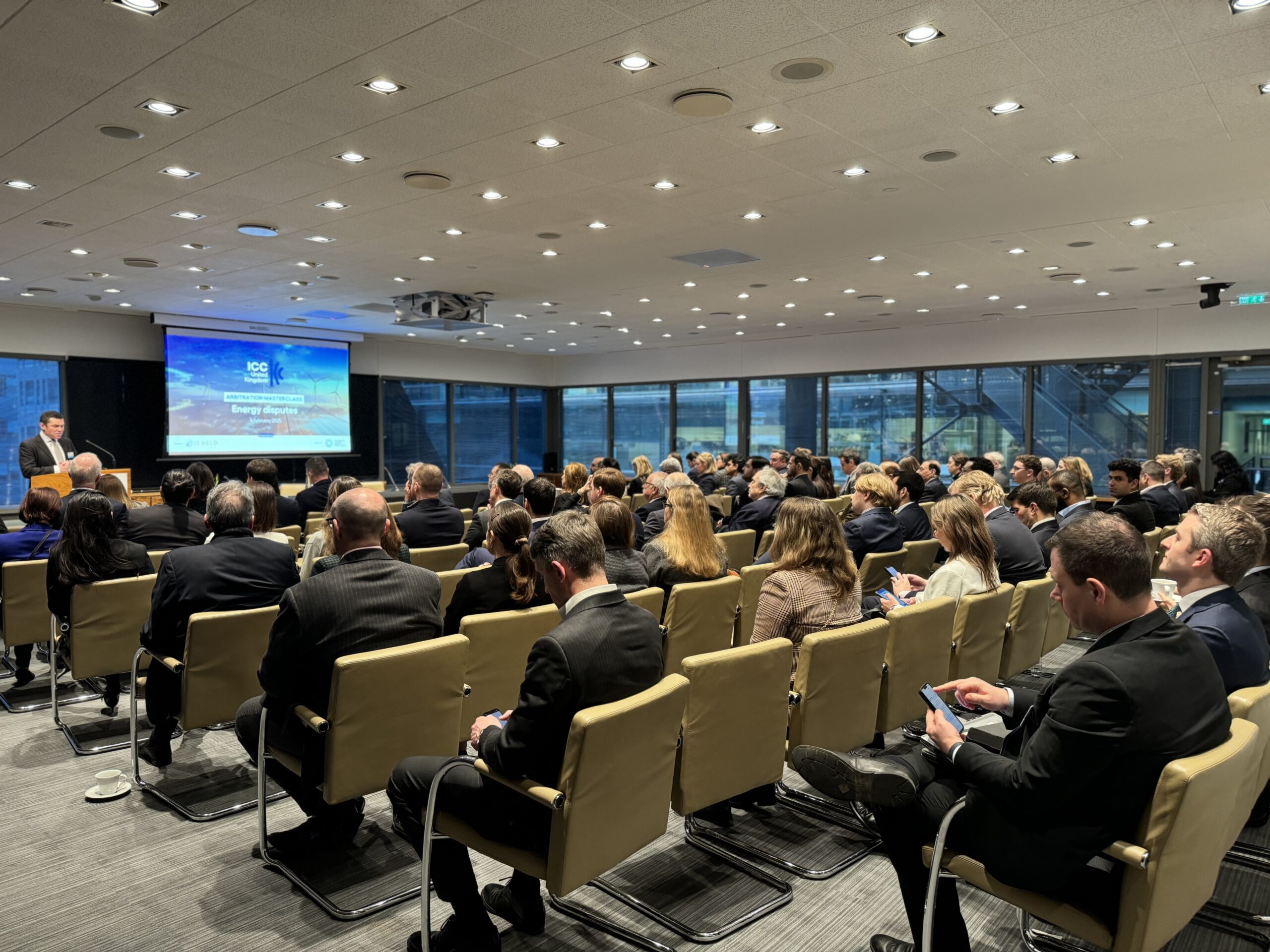Arbitration Masterclass: Dispute Resolution in a Geopolitical World
Escalating trade tensions — driven by tariffs, retaliatory countermeasures, and shifting geopolitical power relations — are reshaping the global business landscape, creating uncertainty and disrupting international supply chains.
This masterclass will explore how businesses can manage and mitigate commercial risk in a rapidly evolving geopolitical environment. The event will also look ahead at the future of arbitration, examining how dispute resolution mechanisms are adapting to new challenges in a world of shifting global dynamics.
Registration
Welcome
- Brendan Vickers, Policy Director, ICC United Kingdom
- Samantha Rowe, Vice Chair, Arbitration & ADR Committee, ICC United Kingdom
- Adam Robb KC, 39 Essex Chambers
Keynote: Arbitration and the Rules-Based Order: Can Neutrality Survive Geopolitics?
Geopolitical Trade Tensions – Tips to Avoid and Resolve Disputes
This session will cover the impact of escalating trade tensions, including tariffs and related countermeasures, on global businesses and key considerations for those businesses, including:
- the main ways of managing commercial risk, including force majeure, frustration and hardship;
- other contractual flexibility mechanisms, including MAC and change in law clauses, liability caps, liquidated damages provisions and risk allocation;
- mastering the dispute resolution mechanism; and
- the role of public international law and investment protection.
Moderator:
- Garreth Wong, Partner, Paul Hastings (Europe)
Panellists:
- Emma Johnson, Partner, Ashurst
- Stuart Dutson, Partner, Simmons & Simmons
- Tom Cameron, Partner, Carter-Ruck
- Nicholas Peacock, Independent Arbitrator & Advocate, Peacock Arbitration
Coffee and Networking Break
Enforcement, Legitimacy and the Future of Arbitration
This session will examine the evolving landscape of arbitrating disputes in a world of overlapping sanctions, war, and national security concerns, including:
- enforcement in politically sensitive or hostile jurisdictions;
- diverging court responses to arbitral awards; and
- legitimacy, reform, and the future of multilateral dispute frameworks (e.g. UNCITRAL, ICSID, NY Convention).
Moderator:
- Peter Turner KC, 39 Essex Chambers
Panellists:
- Penny Madden KC, Partner, Gibson, Dunn & Crutcher
- Charlie Caher, Partner, Wilmer Cutler Pickering Hale & Dorr
- Graham Coop, Partner, Pinsent Masons
- Hayk Kupelyants, Assistant Professor in the Conflict of Laws, King’s College London, and ICC Court Member
Closing remarks
- Brendan Vickers, Policy Director, ICC United Kingdom
Networking drinks

